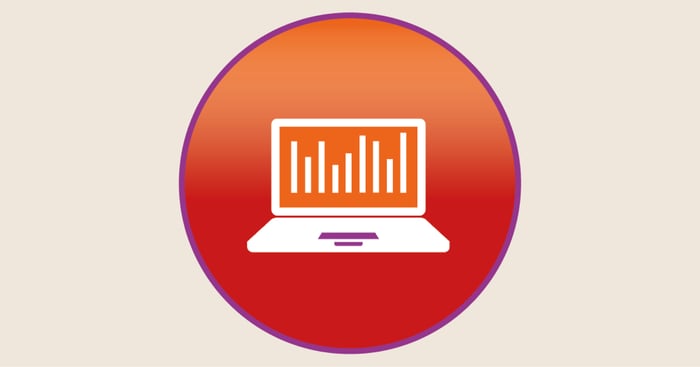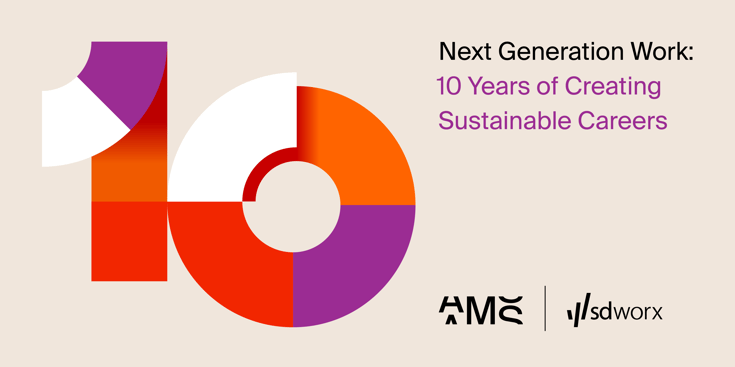The use of data is becoming more and more pervasive in our private lives, yet the incorporation of data in HR takes off on a very slow pace. Only one in five companies in Europe has people analytics projects. Why does it seem to take so much longer for analytics to conquer the work context compared to our private lives?
Analytics are everywhere, except in HR?
The use of data in our private lives is becoming the new normal: wearables monitoring and improving your sport performance, sales promotions tailored to your preferences and buying behavior, warning lights flashing in your car to help you stay safe in traffic, to name but a few examples.
For more than ten years now, we have been talking about data-driven HR and the power of insights for a sustainable HR policy. There may be a few breakthroughs in the workplace, but HR analytics is far from being the new normal. According to research by SD Worx (Future of Work and People 2021), one in five companies in Europe has people analytics projects underway, while 13% are planning one in the short or longer term.
This puts people analytics in 17th place on the priority list of the 19 HR domains that were surveyed. There are some success stories, such as algorithms based on Natural Language Processing and Machine Learning that make recruiting and matching candidates easier, but why does it seem to take so much longer for analytics to conquer the work context compared to our private lives?

The wall of ethics behind Boudreau’s wall
One of the reasons why we haven’t seen a real breakthrough in people analytics yet, has to do with a lack of trust. Employees are having misgivings about the use of data, especially when it comes to sensitive data such as wages or performance. We see similar misgivings about e-commerce or e-government, by the way. And they are in part justified, as there are indeed examples of algorithms magnifying bias and subjectivity. After all, predictions are being fed with data from the past.
In this way, despite all good intentions, data misuse is just lurking around the corner. And once the reputation has been damaged, it becomes difficult to regain credibility. An essential part of the solution is dialogue between employee and employer about the ethical application of analytics.
But then, there are other barriers too.
"Employees are having misgivings about the use of data, especially when it comes to sensitive data such as wages or performance."
Put the complexity under the hood, keep the dashboard simple
For many of us, analytics is the domain of geeky IT professionals and data scientists, not HR professionals. Agreed, but then, there are plenty of experts who can help organizations and employees. When it comes to people analytics, about one in three companies is open to partial or full outsourcing, putting people analytics in the 7th place on the HR's outsourcing wish list, an improvement compared to last year.
So let outside experts handle the complexity. Put conclusions and action-driven suggestions at the forefront in a snackable and visual way and keep the complexity hidden under the hood. In this, however, it is key that end users can trust the conclusions. With so-called 'black box algorithms', it is often hard to understand how they work. Fortunately, experts are already working on increasing transparency.
A future for career analytics?
A final key condition for successfully applying analytics in the work context is to make it part of the flow of work. Only when analytics is making a substantial contribution, improvement or added value in people’s daily work, will it earn its spot in the workplace.
Looking back on ten years of research into Next Generation Work and Sustainable Careers, we see there is still a great need for (more) flexible career paths. Can analytics help guide employees in their further development and career?
When you are driving a car, you have a clear dashboard telling you how fast you are going, which direction to take and how much fuel you have left. But when it comes to personal development and careers, we usually have to do without such data-driven support. Which is too bad, as there is already a lot of smart technology that can help both HR professionals and employees. Just think of nudge tech or recommender systems, where you get suggestions from your digital coach such as "people with a similar profile often choose this training program and are successful in making this career move."
Trust, simplicity and added value
To give people analytics a real chance, you need, first of all, a solid relationship of trust between employee and employer. Enter into dialogue and communicate with your employees.
And remember, new technologies and outside experts can help put the complexity of analytics under the hood and provide user-friendly dashboards for everyday work. You don't have to be an expert yourself.
Finally, people analytics will only really catch on if it comes with a substantial added value day in and day out. And why not introduce analytics into career guidance, supporting employee self-development, enhancing sustainable employability for the organization and making the labor market more flexible?
10 blog posts for 10 years of Next Generation Work
This blog post is the tenth and last blog. In each blog post we will offer solutions from different perspectives, as a count down to May 10th 2022, the moment when we bring everything together in the celebration of 10 years of Next Generation Work. We already look forward to welcoming you there. More information will follow in the next few months.




